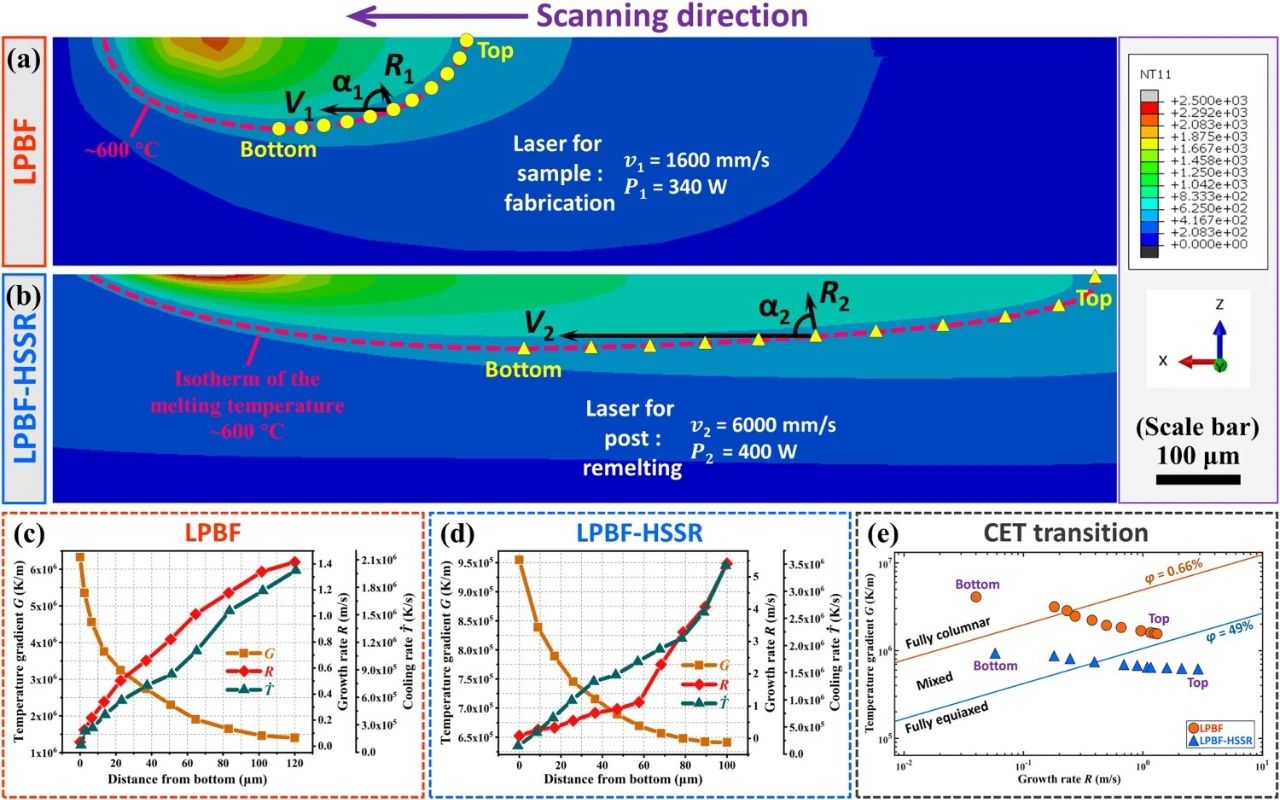With the assistance of BLT, TITAN SUPER BOND successfully manufactured the first Fully 3D-printed Titanium Alloy Bicycle Frame in China, and even across Asia. Titanium alloy 3D printing has officially entered the bicycle industry, opening up limitless manufacturing possibilities for Chinese bicycle manufacturers, represented by TITAN SUPER BOND .

Figure 1: Fully 3D-printed Titanium Alloy Bicycle Frame
Why adopt Additive Manufacturing in bicycle production?
The globally renowned Chinese bicycle industry still faces challenges in the R&D and production of certain high-end critical parts. Metal 3D printing offers significant advantages in manufacturing high-difficulty complex structural parts for bicycles. With precise process control using high-quality metal 3D printing machines, it ensures stable, high-quality production of parts while maintaining dimensional accuracy within the bicycle industry’s requirements of 0.03mm. Additionally, 3D printing technology allows customized vehicle parts to be tailored according to the rider’s habits and requirements, improving riding posture and maximizing riders’ energy output. 3D-printed bicycle parts have higher strength and elongation than ordinary machined parts, resulting in better product quality, greater durability, and lightweight design.
In traditional production processes, manufacturing a bicycle involves multiple steps, including precision casting, CNC machining, wire cutting, welding, calibration, and surface treatment. These processes are intricate and time-consuming, often resulting in a production cycle of approximately 45 days from design to delivery. Metal 3D printing technology simplifies processing steps, reduces production time, and minimizes material waste. The production process of a 3D printing line is 40% simpler compared to traditional processes, resulting in a 30% reduction in production cycles and over 20% savings in production materials. This technology significantly enhances the process strength of welding-intensive areas, reduces labor intensity for technical workers, shortens working hours, and accelerates overall production capacity. Moreover, the introduction of 3D printing technology has optimized the construction process of traditional welding sites by scientifically avoiding areas with concentrated heat effects and performing circumferential lap welding in standard and open pipe sections. This strategic “encircling and supporting” approach to frame welding greatly reduces the technical difficulty of manual argon arc welding and provides possibilities for future robotic automated welding.
How was BLT implemented in the TITAN SUPER BOND?Bicycle?Production Program?
In 2022, TITAN SUPER BOND introduced two Laser-Powder Bed Fusion metal 3D printing machines, BLT-A320, from BLT. With the comprehensive support of BLT’s targeted full set of solutions, TITAN SUPER BOND gradually upgraded its R&D and production capabilities in metal 3D printing, empowering the high-end bicycle market. Since the collaboration began, both parties have successfully addressed challenges related to deformation control of complex-shaped parts and weight reduction.

Figure 2: Two BLT-A320 Machines in the TITAN SUPER BOND Factory
For complex-shaped parts with a wall thickness of only 0.9mm, controlling deformation is the biggest challenge during the printing process. Based on the BLT-A320 machine, TITAN SUPER BOND and BLT have developed a comprehensive solution encompassing detailed production processes such as part design, part support, and lattice control. The printed parts successfully passed the international standard ISO 4210 dynamic fatigue strength test. Additionally, the two parties have collaborated to develop support solutions for large-scale parts and new products, optimization schemes for part lightweight structures, validation of the difficulties in polishing processes for varying layer thicknesses, stability testing for fully nested printing, and assessment of surface roughness for assembly, thus ensuring ample technical readiness for high-quality mass production and customized services for bicycle parts.
The BLT-A320 machine is utilized to produce high-precision titanium alloy bicycle handlebars, and head tubes, characterized by their lightweight, high strength, corrosion resistance, and long service life. The lightweight design effectively reduces the weight of bicycle dropouts and YOKE, thereby reducing the overall vehicle weight and enhancing the vehicle’s speed, which aids riders in minimizing physical exertion during long-distance cycling. The high-strength titanium alloy frame facilitates efficient power transfer and enhances maneuverability, while providing exceptional elasticity, surpassing steel by 30%, and offering exceptional shock absorption capabilities. Titanium alloy parts are resistant to corrosion from acid rain, UV rays, humidity, and other environmental factors. Their metal surfaces remain impervious to dents and rust even after prolonged exposure to air. Meanwhile, 3D-printed titanium alloy bicycles exhibit superior strength and extended lifespan compared to conventional titanium alloy bicycles, essentially achieving permanent damage-free usage.

Figure 3: Metal 3D-printed Bicycle Parts

Figure 4: Titanium Alloy Frame
BLT-A320 boasts a maximum build dimension of 250mm×250mm×300mm (W×D×H). This machine achieves a near 100% density for mold printing and provides polishing performance up to the A0 level. In addition to high-quality mold products, the BLT-A320 can also print various conventional materials such as titanium alloy, aluminum alloy, superalloy, and high strength steel, meeting the printing needs of other industries. Equipped with two optics configurations, the BLT-A320 significantly enhances the efficiency of part formation. Furthermore, the machine not only introduces a nitrogen printing solution and long-life filtration system but also offers optional features such as grafting printing, helping customers reduce operating costs, and facilitating convenient machine operation.
The 3D-printed Titanium Alloy Bicycle Frame demonstrates great value as a brand-new exploration and application of 3D printing technology beyond high-end manufacturing sectors such as aerospace and medical devices. BLT will engage in “cross-industry collaboration” with more industries, exploring new application directions, injecting technological energy into more partners, and unlocking endless possibilities for industry development.
About?BLT
BLT (Bright Laser Technologies) [Stock Code: 688333.SH], is a global leader in providing comprehensive turnkey solutions for metal additive manufacturing and remanufacturing. BLT has developed a mature metal AM ecosystem with a strong focus on industrial metal 3D printers, metal powders, printing services, innovative software, and additive consulting. Drawing on years of expertise in metal additive manufacturing technology, BLT caters to a wide range of industries including aerospace, energy, medical dentistry, industrial tooling, automotive manufacturing and more. Through continuous innovation, the company strives to meet the evolving needs of its customers.



